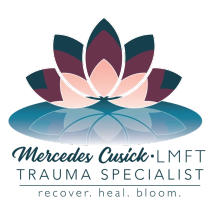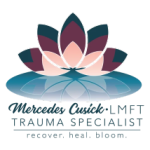Introduction to Narcissistic Abuse: Understanding the Basics
Narcissistic abuse might sound complex, but it’s essentially harmful behavior by someone with narcissistic tendencies or Narcissistic Personality Disorder (NPD). People with NPD often show an inflated sense of their own importance, a deep need for excessive attention and admiration, and a lack of empathy for others. This kind of abuse can happen in various relationships – think partners, family members, or even colleagues. It’s more than just a few mean words; it’s a pattern of psychological bullying that can deeply impact a person’s self-esteem and overall mental health. Understanding this abuse means recognizing its signs, like manipulation, belittling, gaslighting (making you doubt your own reality), and isolation from friends and family. Knowing what narcissistic abuse looks like is the first step toward addressing it. It’s not just about the abuser’s ego; it’s about control. Grasping the basics of this abuse helps victims identify it and seek the necessary help to recover and move forward.
Key Signs of Narcissistic Abuse in Relationships
Narcissistic abuse can be hard to spot if you don’t know what to look for. It often starts subtly and then becomes more destructive over time. The person doing the abusing usually has a pattern of behavior that focuses on controlling and dominating their victim. Here’s what to keep your eyes peeled for: First, they tend to love bomb their partner at the start. This means extreme compliments, gifts, and attention to lure them in. Once they have their partner’s affection, they flip the script. Communication changes; they belittle, criticize, and devalue their partner’s achievements and appearance. They gaslight too, making their partner doubt their own memory or feelings, insisting they’re remembering things wrong or overreacting. Narcissistic abusers demand perfection and often get angry or withdraw affection if their high expectations aren’t met. They isolate their victims, slowly cutting off their access to support systems like friends and family. They use jealousy and accusations to justify their control. Lastly, they rarely take responsibility for their actions, instead, they twist the narrative to make it seem like their partner is at fault. Recognizing these signs is the first step to getting help or supporting someone you suspect is in such a relationship.
How Narcissistic Abuse Affects Your Mental Health
Narcissistic abuse isn’t just stressful; it messes with your mind big time. It’s because the person hurting you uses emotions as their weapon of choice, making you doubt your sanity. You might start to see yourself questioning every decision or feeling guilty for things that aren’t your fault. This constant turmoil can lead to anxiety, depression, and even symptoms of post-traumatic stress disorder (PTSD). Imagine living in a fog where everything you believe about yourself is turned upside down. That’s what narcissistic abuse does; it erodes your self-esteem and makes you feel unworthy. But remember, it’s not a reflection of your worth but a manipulation tactic from them. Recognizing this is the first step in healing and rebuilding your mental health.
Emotional Symptoms: The Invisible Scars of Narcissistic Abuse
Narcissistic abuse leaves deep emotional scars, often invisible to the outside world. Victims might feel a constant sense of doubt, asking themselves, “Am I good enough?” This self-doubt comes from being repeatedly undermined by the abuser. Anxiety and depression are also common, as victims find themselves on an emotional rollercoaster, never sure of what to expect next. Many experience a deep sense of isolation, feeling disconnected from friends and family due to the abuser’s tactics to isolate them. This loneliness isn’t just in their heads; it’s a direct result of the manipulation they’ve faced. Also, there’s this thing called “walking on eggshells.” It means victims are always cautious, trying to avoid anything that might upset the abuser. It’s exhausting and keeps them on high alert all the time. Lastly, there’s a loss of identity. Victims often lose sight of who they are, their interests, and their goals, because their lives have revolved around pleasing the abuser. Each of these symptoms is a heavy burden, making it clear why recovery from narcissistic abuse is much more than just moving on.
Physical Symptoms: The Body’s Response to Constant Stress
When your body faces ongoing stress, like from narcissistic abuse, it can start showing physical signs. It’s like your body is screaming, “Hey, something’s really wrong here!” You might not link these symptoms directly to emotional abuse, but they are a clear signal from your body that it’s under constant stress. Here are some common physical symptoms: you might feel always tired, no matter how much you sleep. Your stomach might act up, giving you issues like nausea or diarrhea. Headaches become a regular visitor, and sometimes they feel like they’re setting up camp in your head. Your heart might race for no clear reason, making you feel jittery. And let’s not forget the muscle aches; it’s like you’ve run a marathon without moving an inch. These symptoms are your body’s way of waving a red flag, saying it’s time to address the stress it’s facing. Listen to it.
Narcissistic Abuse in the Workplace: Recognizing the Signs
Narcissistic abuse in the workplace can be tough to spot, especially because it doesn’t always come across as outright bullying. It’s more subtle, wrapped in manipulative and undermining actions that can leave you feeling confused, inadequate, and questioning your abilities. First off, if you notice a pattern where praise always comes with a backhand critique, or your achievements get downplayed or stolen by someone else, that’s a red flag. This kind of behavior can create a toxic work environment where it feels like you can never do right. Another sign is constant guilt-tripping. Say you’re made to feel guilty for taking a day off or not answering emails after hours. This is a tactic to make you doubt your boundaries and dedication. Lastly, gaslighting is a big one. If you find your reality being twisted, like being told you didn’t meet expectations you were never informed about, you might be dealing with a narcissist. In essence, if your workplace leaves you feeling degraded or perpetually on edge, it could be time to look closer at the dynamics at play.
Coping Mechanisms: How Victims Deal with Narcissistic Abuse
Victims of narcissistic abuse often find unique ways to cope with the pain. Self-care is essential, including activities that boost self-esteem such as exercise or quality time with loved ones. Many individuals benefit from journaling, a valuable method to express emotions freely. EMDR Therapy is a highly recommended approach for processing and overcoming trauma. Joining support groups can provide solidarity and reassurance that one is not alone in their experiences. It is crucial to establish boundaries with the abuser, if still present, to ensure personal safety. Educating oneself about narcissism can help victims recognize they are not to blame for the abuse they endured. Engaging in personal growth and pursuing hobbies can facilitate healing and self-discovery. Every individual’s healing journey is distinctive, but the ultimate objective is to regain control and foster a healthier lifestyle.
The Long-term Impact of Narcissistic Abuse
Living under the shadow of a narcissist leaves deep marks, and the impact doesn’t vanish overnight. Think of it like emotional weathering, constant exposure damages your inner landscape, shaping it in ways that can be tough to remodel. Victims often battle with self-esteem issues, feeling unworthy or less than. This isn’t just about feeling blue; it’s a profound sense that you’re not enough, fueled by the narcissist’s endless criticisms and demands. Trust becomes a high wall to scale. When trust is smashed repeatedly, you start expecting the worst from people, making genuine connections hard to form. Darker still, many develop anxiety or depression, their minds trapped in a state of constant alert or deep despair. These aren’t temporary blues; these can be long haul battles needing professional care. Post-traumatic stress disorder (PTSD) is also common. It’s like the mind keeps replaying the horrors, not recognizing the war is over. It’s heavy stuff. Remember, acknowledging the impact is step one on the climb out of that deep well narcissistic abuse digs. It’s rough terrain, but not impossible to traverse with help.
Seeking Help: Support Systems and Professional Care
Recognizing you’re dealing with narcissistic abuse is the first brave step. The next, equally crucial part is reaching out for help. You don’t have to face this alone. There are both formal and informal support systems out there designed to help you heal and regain your footing.
Informal support comes from your personal network: friends, family, or someone who has been through similar experiences. These are people who offer a shoulder to lean on, an ear to listen, and sometimes, a necessary escape. They provide emotional grounding and practical advice, reminding you that your feelings are valid and your well-being matters.
Formal support, on the other hand, involves seeking professional care. Therapists or counselors specialized in narcissistic abuse can give you the tools to understand what you’ve been through and how to move forward. They work with you to rebuild self-esteem, set healthy boundaries, and develop coping strategies. Sometimes support groups, either in person or online, can play a pivotal role. Sharing your story with others who understand can be incredibly validating and empowering.
Always remember, reaching out is a sign of strength. By building a support network and seeking professional care, you’re taking important steps towards healing and reclaiming your life.
Conclusion: Empowering Yourself to Move Forward
Knowing the signs and symptoms of narcissistic abuse is crucial, but what comes next is equally important: empowering yourself to move forward. First, recognize that healing is a journey, not a destination. It takes time, patience, and often professional help. Don’t shy away from seeking support, whether it’s therapy, support groups, or confiding in trusted friends. Setting boundaries is another crucial step. Be clear about what you will and will not tolerate. This might be difficult at first, but it’s essential for your wellbeing. Remember, it’s okay to walk away from situations or people that harm you. Most importantly, rediscover and reclaim your identity. Narcissistic abuse can make you lose sight of who you are. Spend time doing things you love and that make you feel good about yourself. Empowerment comes from within, and it’s about taking back control of your life, one step at a time.
About the Author:
I am Mercedes Cusick, LMFT, a certified EMDR trauma therapist specializing in EMDR intensives. I am dedicated to addressing trauma-related challenges and improving mental health outcomes. My commitment to trauma therapy is driven by its significant therapeutic effects, particularly for individuals grappling with complex trauma, PTSD, toxic relationships, and narcissistic abuse.
Serving a diverse community with dedication and empathy, I am proud to support individuals in the Los Angeles area, specifically in Woodland Hills, Calabasas, Agoura, Hidden Hills, West Hills, Northridge, Winnetka, Tarzana, Studio City, Sherman Oaks, Malibu, and Beverly Hills. Together, we can journey toward healing and resilience.







